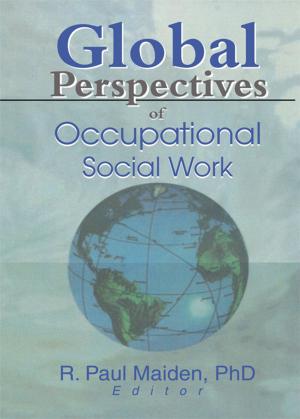China's Peasant Agriculture and Rural Society
Changing paradigms of farming
Nonfiction, Social & Cultural Studies, Social Science, Sociology, Rural| Author: | ISBN: | 9781317285458 | |
| Publisher: | Taylor and Francis | Publication: | May 20, 2016 |
| Imprint: | Routledge | Language: | English |
| Author: | |
| ISBN: | 9781317285458 |
| Publisher: | Taylor and Francis |
| Publication: | May 20, 2016 |
| Imprint: | Routledge |
| Language: | English |
China's agriculture and rural society has undergone rapid changes in recent years. Many poorer farmers and younger people have moved to cities, and yet China has an immense challenge to feed a growing and more affluent population. This book provides a ‘bottom-up view’ of China’s agriculture, showing how the many millions of Chinese peasants make a living. It presents a vivid description of the mechanisms used by rural households to defend and sustain their livelihoods, increase their agricultural production and improve the quality of their lives.
The authors examine the newly emerging trajectories of entrepreneurial and capitalist farming and assess whether such alternatives will be able to meet the enormous social, economic and environmental challenges that China faces. The book also explores the paradigm that has underpinned the organisation and development of China’s agriculture from ancient times to the present day. This shows the importance of balancing in the Chinese model as compared to the one-sided imposition of continual modernization in the western model. It is argued that such balancing is at the core of the current Sannong policy, referring to the three ruralities of food sovereignty, wellbeing for peasant households and an attractive countryside.
China's agriculture and rural society has undergone rapid changes in recent years. Many poorer farmers and younger people have moved to cities, and yet China has an immense challenge to feed a growing and more affluent population. This book provides a ‘bottom-up view’ of China’s agriculture, showing how the many millions of Chinese peasants make a living. It presents a vivid description of the mechanisms used by rural households to defend and sustain their livelihoods, increase their agricultural production and improve the quality of their lives.
The authors examine the newly emerging trajectories of entrepreneurial and capitalist farming and assess whether such alternatives will be able to meet the enormous social, economic and environmental challenges that China faces. The book also explores the paradigm that has underpinned the organisation and development of China’s agriculture from ancient times to the present day. This shows the importance of balancing in the Chinese model as compared to the one-sided imposition of continual modernization in the western model. It is argued that such balancing is at the core of the current Sannong policy, referring to the three ruralities of food sovereignty, wellbeing for peasant households and an attractive countryside.















